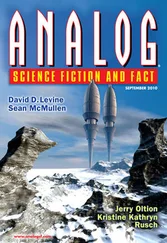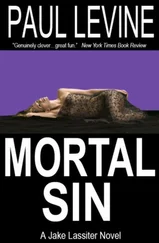And in a moment when the operator came onto the line, available in so many senses of the word, Dra— would introduce herself, and even perhaps offhandedly describe the man to the operator, and ask if the operator knew him, because the operator might; and heartened, she decided to ask the operator about the Nurse, and job sites, too, and about the thin line separating the gestation of happiness from actual happiness, and the futile enterprise of trying to cling to people who are gone.
As the line clicked open, her heart pounded, for she had no idea how to put all this to the operator, or beyond that, how to tell the operator what she really wanted, deep down; but as it happened, none of this mattered, for she heard the operator talking to someone else, another woman. Dra— hesitated, listening, because in fact the operator was crying.
“It’s not true,” the operator sobbed, gulping wetly. “But you had to say it, and on my birthday, too!”
“I thought it was important to say,” replied the other woman evenly.
“How can you tell such a lie?” the operator said with extreme agitation. “Do you think I’ll believe every fool thing you come up with, even to the effect that my mother threw me out like a dead rat? That never happened!” She drew in air noisily. “But even if it did, what would it matter now? That’s in the past, and the past is for babies who live there to cry their eyes out!” She broke into sobs again.
The other woman said, “Once you accept the truth, I imagine you will feel hurt and angry; then, you’ll begin to feel better.”
“Quiet!” the operator screamed. “Angry? Yes, not because of what you say, but only because of my awful half-a-life, with everyone running away the second they say hello or tiptoeing around like they’re afraid of the dead!” She burst into tears anew.
“Things are difficult, right now,” the other woman said. “People may sense you are having trouble.”
“Oooh!” yelled the operator with force. “Why are so many people alive in the first place, can you answer me that? Why were they all born? How can they all stand to exist, so filthy with sweat and dust and work, sitting together on benches like it’s the most natural thing in the world? All that skin flaking away to the ground, turning to dust, all the hair, think of it! God,” she moaned, “think of feet! No one ever talks about these things, do they? That’s because no one can stand it. Do you know how many people are in the world?”
“Not really,” the woman answered.
“Well, I do, and I’m not going to tell you because the number might make you sick! What are all these people doing alive?”
“Well, you’re alive,” said the woman.
“But I can see into these things better than most people!” the operator yelled. “Answer me, why do they continue to live? They’re only going to be very disappointed!”
The other woman gave a deep, slow sigh, which was followed by the sound of the operator crying, berating, “Why can’t they stop, instead of satisfying God’s wishes?” After which Dra— quietly replaced the receiver, for the operator was too upset to offer help right now.
Disappointed, Dra— pondered; she could not go into the Employment Office, not with the man inside, for her thoughts about him shamed her as much as anything. So she crouched below the row of telephones opposite the office entrance to wait until he left. Once he was gone, she told herself, she would go inside, provided the department was still open; though it was open now, and the hour was terribly late.
Much later, as she waited in the dead silence of the hall, she shifted her weight; and then, cramped, she waited a good hour longer, until she felt a vibration and looked up: the Employment Office door swung open and the man appeared, though now in a wheelchair, accompanied by a lean attendant whose eyes fanned back and forth as he slid the chair down the hall.
She waited perhaps an hour longer, just in case the man should be wheeled back; and finally, exhausted, she rose painfully and moved toward the Employment Office door, ready beyond words to settle the business of finding a job. She considered asking the receptionist inside where a fresh drink of water might be found, though she hated the thought of asking for such things and then being rebuffed.
It would not be practical in any case, she realized, to ask for water at this late hour, since the office was probably shut down for the night. So banishing this thought and all others from her mind, she held her breath and pushed through the door of the Employment Office, seeing, to her mild surprise, dozens of workers milling to and fro in the half-lit rear portion of the room, hauling files and papers into a long corridor beyond. To the side of the office, a few employees, perhaps on their breaks, sat on toilets reading newspapers with great absorption, rattling the pages as they readjusted their elbows on their knees.
This sight was somewhat comforting, and she moved toward a niche in the wooden counter where visitors were meant to stand and wait. A woman in a red pleated skirt was sitting at a desk behind the counter, chin in hand, staring at her. The woman said, “Excuse me, but are you in pain?”
Dra— hesitated, not knowing how to answer succinctly, gaping at the woman, who, with her long face, enormous features, and thick, rather insolent stole of hair, now stood, planting her fingertips on the desktop. She stepped forward and introduced herself as the Manager, extending her hand over the counter as if to shake briefly before withdrawing the hand then placing its large palm on the side of Dra—’s neck, as if to check for fever.
“I know you want a job, and that’s fine. Beginning right now, you will depend completely on me to help you find one. Does that disturb you? It might. Yet, it’s so very common for us to depend on others for our jobs, or even for our sense of self, do you know what I mean? It’s true,” the woman nodded, smiling for a second, red lips pursed charmingly; “and if our mother did not respond to us warmly when we were young, or if she left us in order to go to the cinema, we probably felt like we didn’t exist at all, do you see? Right now, do you feel like you don’t quite exist either? As if you’ve been, perhaps, blown off the face of the earth?”
The Manager strode out from behind the counter, revealing a surprisingly heavy torso, which was odd, for her limbs were exceedingly thin. “Yes, you do feel that way: I can feel it myself, just looking at you. Painful memories are everywhere inside you, dating from your earliest moments — you know, the time when the world was not perfect enough for you? We all have such memories,” she giggled, revealing long teeth.
“Now, let’s talk about employment,” the Manager went on, leaning her elbow on the counter, slipping off a shoe, raising it to peer in and blow inside it. “I commend you on the wish for a job — jobs are tedious and death-making and we can’t change that — if we tried to change it, why, there might be an earthquake! Or worse — well, don’t think about that, or the future, when we will be dead and gone from ourselves in the strangest way, without bodies. We’re much too busy to have time for those thoughts!
“It’s hard,” the woman said wonderingly, leaning on the counter, “to know who people really are when alive, never mind when they’re dead. And as for you, no matter who you are, I don’t want to see you wind up working at some horsey old job site where there’s no water to drink nor any solid way of life. Do you see? I want you to thrive. And actually, you are lucky. Because today I have some work available — a permanent job, no less!
“There are actually two such jobs open, so you’ll need to choose between them,” the Manager continued, swiping at her thick bangs. “I allow my employees to choose; it’s healthy to choose, isn’t it? Choosing is handy; it reflects the fact of our freedoms, and also the fact that every little thing we do has repercussions. Choosing makes sense! Everyone makes choices — there always seem to be so many choices to make; and yet,” she began to whisper, “there are really so few after all! Right?” She winked and pulled a tissue from her sleeve, swabbing her nose with it.
Читать дальше












